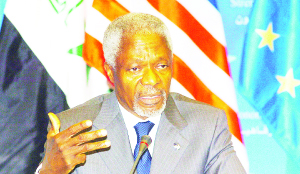By Nancy Saili –
With warm temperatures rising everyday and the recent study showing that 2015 might be the hottest year on record, people all around the world, especially in developing nations, are counting on the world to decide in Paris and do whatever it takes to limit temperatures exceeding two degrees celsius.
An increase in the temperature will spell more disasters than those currently faced and because we already live in a world of inequalities between the rich and the poor, climate change will fuel existing disadvantages for the most vulnerable who are already struggling to meet basic needs of survival, education and development.
According to Al-Jazeera, Zambian communities are already suffering through severe drought. Zambia is currently experiencing load-shedding of up to 10 hours daily due to a drought that has seen the water levels of Kariba, the world’s largest man-made reservoir, drop to its lowest in years, forcing major power cuts.
At the recent Africa Progress Panel meeting, former UN Secretary General, Kofi Annan urged all countries to “seize the climate moment,” adding, “climate change is the greatest challenge facing humanity today.
The effects are being felt all over the planet, but not equally. In Africa millions already feel the consequences of global warming yet millions more have never reaped the benefits that citizens in countries with high-carbon economies have long taken for granted.”
Meanwhile, current UN Secretary General Ban Ki-Moon is urging countries to bring to the summit bold pledges: Innovate, scale up, co-operate and deliver concrete action that will close the emissions gap and put us on track for an ambitious legal agreement.
In order to keep global temperatures below two or even 1.5 degrees celsius, there is need to phase out emissions from fossil fuels until mid-century. Managing fossil fuels is no longer sufficient therefore it is important that countries should focus only on phasing out of fossil fuels and phasing in renewable energy. We need a rapid transition to clean and affordable renewable energy. In December 196 countries will meet in Paris to sign a new and binding agreement, the question however that begs to be answered from citizens of developing nations is, will the deal be meaningful and make a difference to climate action on the ground?
Children in developing countries such as Zambia know nothing about climate change but they feel the heat and face the impacts of climate change every day. Farmers have little knowledge about change in weather patterns and therefore fail to plan for their crops. People sit and watch their homes get destroyed and their loved ones die from hurricanes, famine and disease and they are not capable of doing anything about it.
But to these people who do not even know about the Conference of Parties (COP) meetings, the deal matters the most. Lands Permanent Secretary Barnaby Mulenga urged technocrats to put the interests of the 13 million Zambians first as they sit to come up with the Intended Nationally Determined Contributions (INDC).
The Paris summit is said to mark the end of the fossil fuel era and accelerate the transition to 100 per cent renewable energy future for all. If we are to achieve zero emissions by mid-century and head towards 100 per cent renewable energy countries must agree on long-term action of phasing out fossil fuels.
Countries must also commit to short-term emission reduction commitments that should be aligned with the long-term goal with rich countries reaching zero emissions before 2050 and providing support to poor countries in order for them achieve 100 per cent renewable energy supply by 2050. This short term, long term goal demand is due to the fact that current INDCs will not be enough to keep global warming below two degrees celsius.
In developing countries such as Zambia, five year cycles are important because the country’s plans might change based on economic change and need for adaptation and mitigation. These cycles are important for reviewing and improving on climate action.
The transition to 100 per cent renewable energy is not only important in achieving the goal of providing universal access to energy, it will also create jobs, assure healthier lives and bring along savings in fuel costs.
Subsidising low-carbon energy, supporting research and development, cutting fossil fuel subsidies and adopting new standards and taxes on carbon emissions or emissions trading schemes should all be priority in the fight for a zero emission economy by 2050.
One of the elements pointed out by Green Alliance in ensuring meaningful action on climate change is a long-term approach. The Green Alliance highlighted two important reasons for why the deal should include a long term approach.
The first is that carbon targets will need to be revised in the light of emerging science and the second, that as confidence in the agreement grows, and countries implement low carbon strategies, there will be more evidence of the social and economic benefits of action and greater confidence amongst investors.
It is hoped that this will lead to a virtuous cycle of action, and the possibility of greater ambition in future international negotiations. This long term goal can be achieved through the inclusion of five-year commitment periods that should move towards a goal to phase out pollution from fossil fuels and phase in clean energy technology by 2050.
2050 is our year, the goals may be long-term, but deep reductions in emissions need to start now. In the words of Aristotle “We are what we repeatedly do. Excellence, then, is not an act, but a habit.” Paris is only the beginning, climate action should be on-going.
Countries, therefore, need to commit to improving and strengthening these goals every five years if we are to get to a zero emission world in 2050.







